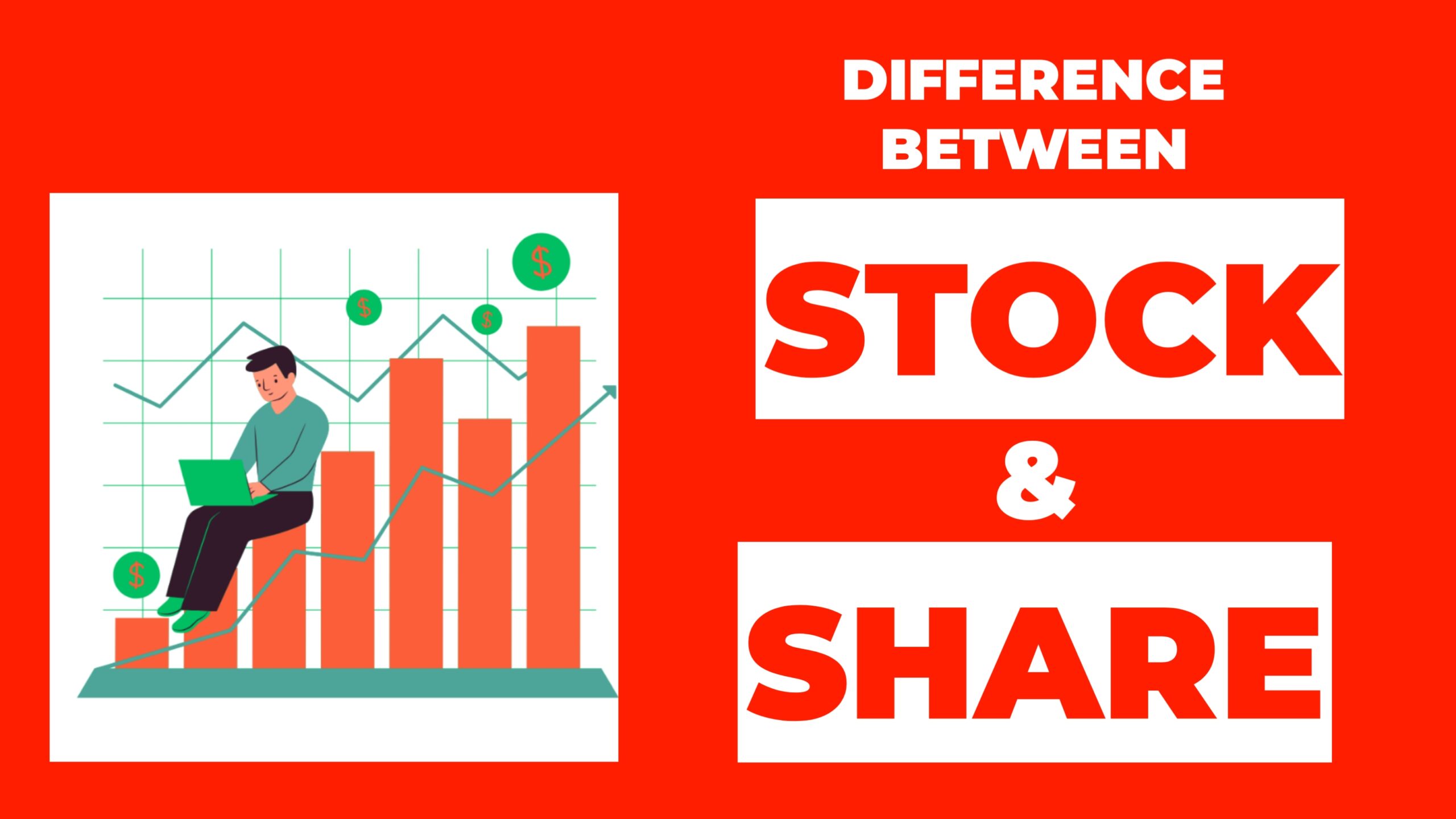Have you ever wondered about the differences between stocks and shares? In the world of stock market, you often hear about “stocks” and “shares”, but are they really the same? Do they hold distinct meanings? What exactly are they, and how are they different? It is important for a beginner to know about these concepts. So let us proceed.
Table of Contents
What is a Stock?
Let’s start with the definition of a stock.
A stock represents ownership in a company that has chosen to go public (though it’s important to note that companies don’t necessarily have to go public to issue stock. Private companies can also issue stock to investors).
When a company goes public, it doesn’t typically make its entire ownership available to the public. Instead, it offers a portion of its ownership to the public. For instance, if a company decides to make 40% of itself public, that 40% portion is referred to as its stock in a broader sense. (However, this 40% portion can also be referred to as share of the company’s previously 100% ownership.)
What is a Share?
The company then divides that 40% portion into smaller units, which we call shares, and offers them on the capital market. Let’s say the company creates a total of 1000 shares from that 40% portion. In this case, someone who owns 500 shares actually owns half of the available shares.
To simplify, a stock is essentially the name of the publicly available company, while shares represent the individual units of ownership in that company.
Shares are like the individual slices of the stock we talked about. Each share is one piece of ownership in the company. So, if a company has a million shares, and you own 100 shares, you own 100 out of those million slices of the company’s stock.
The term “stock” in this context refers to the total outstanding shares of the company, while “shares” specifically refer to the individual units of ownership.
A share is the smallest unit of a stock.
3 Important Differences Between Stocks and Shares
| Point | Stock | Shares |
|---|---|---|
| Meaning | Represent overall ownership in a company | Represent specific units of ownership in a particular company |
| Example (Cake Analogy) | Like the whole cake | Like the individual slices of the cake |
| Usage in Conversation | Used to talk about general ownership in a company | Used to talk about parts of ownership in a company |
[ Shares of a Stock – simple and clear ]
Is share and stock the same?
People use “stocks” and “shares” interchangeably. They both refer to ownership in a company. It’s like saying “car” or “automobile”—two words for the same thing. However, let’s clarify with an example:
If you own 10 stocks, it means you own shares in 10 different companies. Each stock represents ownership in a separate company.
On the other hand, if you own 10 shares, it means you own 10 shares of a single company. Each share represents a portion of ownership in that specific company.
To make it clearer, think of a stock as the entire company, and a share as a slice of ownership in that company.
What do you mean by stake?
Stake is just a fancy word for how much of the company you own. The more shares you have, the bigger your stake in the company. Ownership stake is determined by the percentage of shares owned relative to the total outstanding shares of the company. It’s not just about the number of shares owned but also about the proportion of ownership relative to other shareholders.
Conclusion
So, stocks and shares are like two sides of the same coin. They’re both about owning a piece of a company, but one is the whole picture (stocks), while the other is the little parts that make up the whole (shares). Understanding these terms can help you feel more confident when you’re talking about investments and making decisions about your money.

